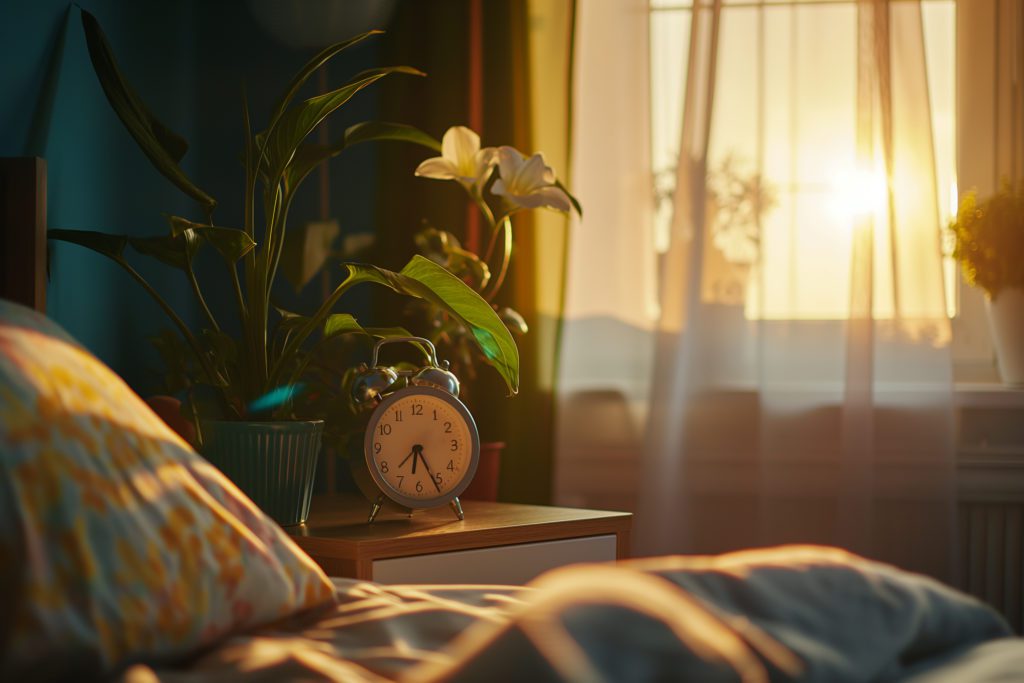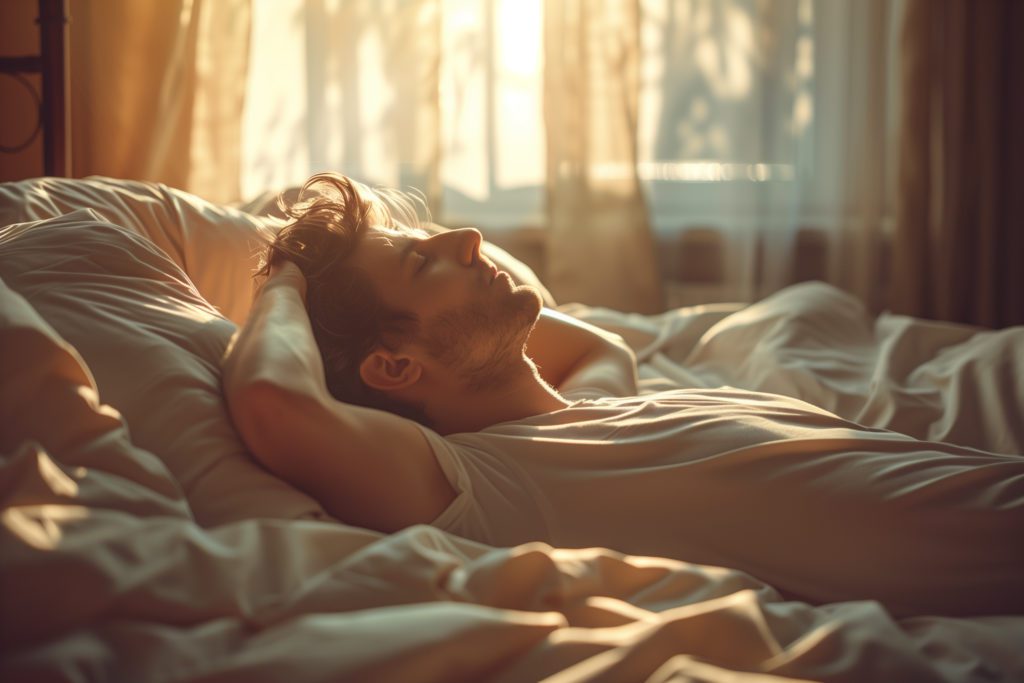
Can Social Media Influence Your Sleep Habits?
Discover the connection between social media and sleep quality. Learn tips to limit screen time and create a relaxing bedtime routine for a better night’s sleep.

Recently, social media feels like it isn't just a part of our lives but that it is our lives. It's hard to imagine a day without scrolling through social media. Whether it's checking our feeds, catching up on the latest news, or connecting with friends, social media has become an integral part of our lives. This raises an important question: Can the routine of engaging with social media and sleep quality be interlinked?
In this article, we’ll talk about the role that social media plays in our sleep habits and how to create a healthier routine for better sleep.
The Link Between Social Media and Sleep
Have you ever noticed how a quick check of your social media feeds before bed can turn into an hour-long session? It's not just your willpower at play here—there are actual psychological and physiological reasons why social media can keep us up at night.
Engaging with social media often means exposing ourselves to the bright light of our phones and computer screens. This isn't just any light; it's rich in what's known as "blue light." This type of light is especially good at disrupting our natural sleep cycle. How?
Well, blue light affects our body's ability to produce melatonin, a hormone that tells our brain it's time to sleep. So when you're scrolling through your phone, you're essentially sending a signal to your brain to stay awake, not wind down.
Psychological Effects of Social Media on Sleep
Beyond the blue light factor, have you ever noticed how difficult it is to put down your phone when your feed is full of engaging posts, viral videos, or heated debates? Social media is designed to capture and keep our attention, which can be a bit of a problem when it's time to hit the hay.
One reason social media can interfere with winding down is due to the captivating nature of the content itself. Whether it's a fascinating article, an amusing TikTok video, or updates from friends, this content keeps our minds active. Instead of relaxing, our brains continue to process and engage with information, which can make it difficult to transition into sleep mode.
Additionally, social media can evoke a range of emotions, from stress and anxiety to excitement and joy. These emotional responses can disrupt your sleep-wake cycle. For example, if you're feeling stressed or anxious about something you saw on social media, it can be difficult to relax and fall asleep. At the same time, if you're feeling excited about something you saw, it might keep you awake and buzzing.
Social media can also be habit-forming. According to studies, social media can have a powerful affect on our brains that creates a stimulating effect similar to addiction. The constant stream of updates and notifications can create a sense of urgency and make it difficult to put your phone down. This can lead to late-night scrolling sessions that disrupt your regular sleep schedule.
The interaction between social media and sleep isn't just about losing track of time. It's also about how the light from our screens and the engaging nature of the content can disrupt our natural sleep patterns, making it harder to fall asleep and potentially affecting the quality of our rest.
5 Tips for Healthier Social Media Habits Before Bed
Now that you understand how social media can impact your sleep, it's time to make some changes. Here are a few tips to help you develop healthier habits.
1. Set a Specific Time to Log Off
Committing to a specific log-off time each night helps train your body to expect sleep at the same time, stabilizing your internal clock. Research also shows that consistent sleep appears to lead to better health and higher mortality rates.
Consistency is key in building any habit, especially sleep. So by disconnecting from stimulating content on social media well before bedtime, your mind has a chance to unwind and prepare for sleep, making it easier to fall asleep faster, enjoy deeper rest, and maybe even live longer!
2. Use "Night Mode" on Devices
Activating 'Night Mode' on your electronic devices reduces blue light exposure. We know now that blue light, typically emitted by screens, is known for its potency in disrupting the production of melatonin, the hormone that regulates sleep-wake cycles. By reducing this exposure, 'Night Mode' helps maintain your natural sleep rhythm, making it easier for you to fall asleep once you turn off your device.
3. Turn Off Notifications
Turning off notifications after your log-off time eliminates the risk of being woken up or disturbed by late-night alerts. Try using the “Do Not Disturb” feature to avoid getting unnecessary notifications. Notifications can create a sense of urgency, making you feel like you must check your phone. Disabling them minimizes disruptions and reduces the temptation to engage with content that can wait until morning.
4. Create a Relaxing Pre-Bed Routine
Engaging in relaxing activities such as reading a book, listening to soothing music, or practicing relaxation exercises like deep breathing or meditation can significantly improve your sleep quality. These activities decrease stress and promote relaxation, signaling to your body that it's time to wind down. This mental shift away from the high energy and often emotionally charged content on social media ensures a smoother transition to sleep.
5. Keep Devices Out of the Bedroom
Keeping electronic devices out of your bedroom can help make your sleep environment a sanctuary for rest. The presence of these devices can be a big temptation to engage in social media activities, thus disrupting sleep. Additionally, the absence of screens minimizes any ambient light, creating a darker, more conducive environment for sleep.
Practicing these tips before bed can give you a more holistic approach to managing your nighttime routine, allowing for a better night's sleep unaffected by the disruptions of social media.
Unplugging for a Restful Night
We've explored how social media can disrupt your sleep patterns, from the blue light emitted by screens to the mental stimulation it provides. But remember, it's not about completely eliminating social media from your life. The key is mindful usage.
By following the tips we've discussed, such as setting a specific time to log off, using night mode, turning off notifications, creating a relaxing pre-bed routine, and keeping devices out of the bedroom, you can create a healthier relationship between social media and sleep.
Experiment with these strategies and see if you notice any improvements in your sleep quality. Remember, a good night's sleep is essential for your overall well-being. If you find yourself struggling to disconnect from social media or you’re still unable to get restful sleep despite practicing these strategies, it might be a good idea to seek help from a mental health professional.

Written by
Emily Mendez
Emily Mendez is a former therapist and mental health author. She is one of the leading voices in mental health. Emily's writing has appeared in eCounseling, SonderMind, and more. Emily is frequently interviewed by Healthline, Fatherly, INSIDER, Family Circle, and other national media for her advice and expert opinion on the latest mental health topics.
Download Pillow
Get help
Press & News
Legal
Connect
X (Twitter)
Company
Copyright © Neybox Digital Ltd.



